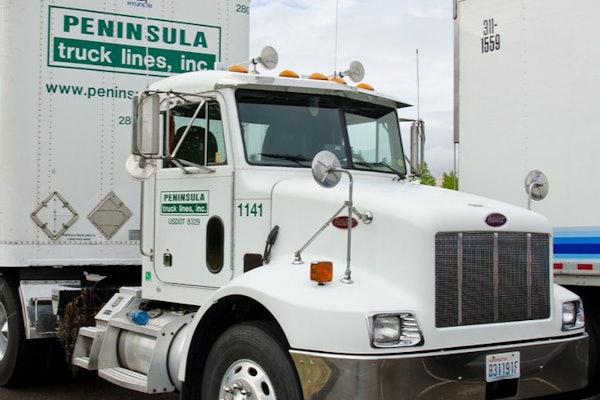The Owner-Operator Independent Drivers Association has come out strongly against a future pilot program referenced by Acting U.S. Secretary of Transportation Maria Cino that would allow Mexican truckers beyond the 20-mile southern border commercial zone to which they now are restricted.
OOIDA, which represents small business trucking professionals, was reacting to Cino’s comments that appeared in an interview published in the July 24 issue of Traffic World magazine. Cino, quoted in the magazine, said that the proposed one-year pilot program would involve about 100 Mexican motor carriers and could be unveiled by the end of 2006.
Speaking on behalf of OOIDA, Executive Vice President Todd Spencer said the pilot program is a “mistake” because the United States is not in a position to address the safety and security issues of Mexico-domiciled trucks and trucking companies operating with free reign on U.S. highways.
Laws governing the trucking industry restrict trucks and drivers from Mexico and Canada to carrying international shipments between their home countries and individual points in the United States. Those same laws prohibit foreign trucks and drivers from moving loads from point to point within U.S. borders.
“Not a single state enforces the directives established by Congress in 2001 regarding Mexican motor carriers,” Spencer said, referring to the FY 2002 Transportation Appropriations legislation that lays out specific criteria for the U.S. and Mexican governments to establish prior to fully opening American roadways to Mexican trucks.
The legislation also imposed comprehensive safety requirements on Mexican trucking companies before they are granted conditional authority and allowed into the United States. Amongst other requirements, safety exams must verify that Mexican trucking firms have drug and alcohol-testing programs, proof of insurance and qualified drivers with clean driving records.
OOIDA maintains that truck safety considerations and serious homeland security concerns remain regarding Mexican-domiciled drivers and trucking companies. Spencer also pointed out many other issues remain, involving immigration, customs, reduced tax revenue for roads as well as the impact on the U.S. trucking industry and the livelihoods of American truck drivers.
“Without having fully complied with congressional directives, a move by the U.S. Department of Transportation to open U.S. roadways to Mexican trucks puts the interest of foreign trade and cheap labor ahead of everything else, including highway safety, homeland security and the well being of hard-working Americans,” said Spencer, who indicated that the association would be reviewing all available options in response to a pilot program.








